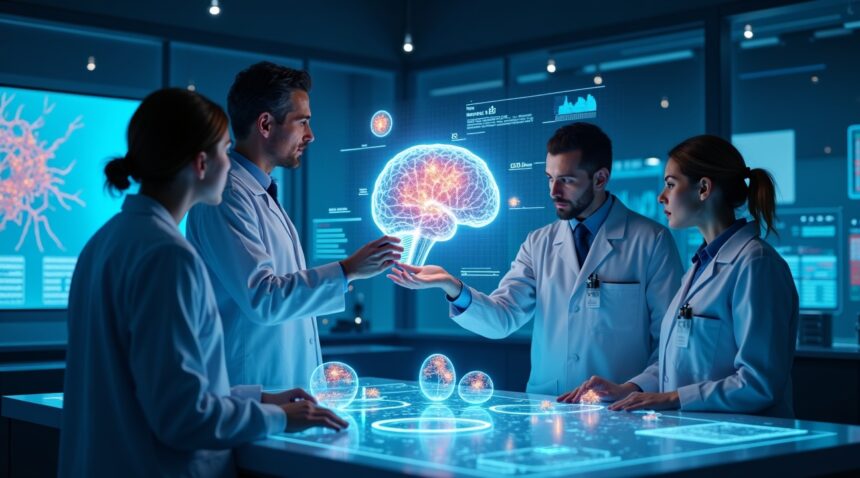Swedish researchers from the Karolinska Institutet have definitively proven that adult human brains continue producing new neurons throughout life, resolving a long-standing scientific debate.
Groundbreaking Neurogenesis Discovery
In a landmark 2025 study, scientists utilized advanced molecular techniques combined with artificial intelligence to uncover the presence of active neural progenitor cells in the brains of adults aged 20 to 78 years. These progenitor cells were found producing new neurons specifically in the hippocampus—a region critical for memory consolidation and learning.
Evidence Across a Wide Age Range
By analyzing brain samples across a wide age spectrum, researchers provided conclusive evidence that neurogenesis—once thought to cease after childhood—continues throughout the human lifespan. This adds a new dimension to our understanding of the brain’s capacity for adaptation and repair.
Key Takeaways
- Adult brains maintain the ability to grow new neurons throughout life, although production occurs at slower rates compared to childhood.
- Individual variation in neurogenesis capacity exists, with factors such as genetics and environment likely playing significant roles.
- The hippocampus is the central hub of adult neurogenesis, integrating newly formed neurons into existing neural circuits.
- Potential therapeutic applications include treatments for memory loss, depression, anxiety, and degenerative diseases through stimulation of brain regeneration.
- Use of AI-powered molecular tools allowed researchers to overcome prior technical challenges, resulting in definitive identification of new neuron formation.
Future Implications
This revelation may serve as a stepping stone for developing more effective neurological treatments. The full study is available from the Karolinska Institutet, offering insights that could redefine approaches to brain health and cognitive longevity.
Groundbreaking Discovery: Adult Human Brains Continue Growing New Neurons Throughout Life
Swedish researchers from the Karolinska Institutet have finally settled one of neuroscience’s most contentious debates. I can confirm that their research, published in Science in July 2025, provides definitive evidence that adult human brains continue producing new neurons throughout life, specifically in the hippocampus—the brain region crucial for memory formation, learning, and emotional regulation.
This discovery fundamentally changes how I understand brain plasticity and cognitive potential. The Swedish team detected neural progenitor cells, which serve as precursors to fully developed neurons, in adults ranging from 20 to 78 years old. These findings directly challenge previous assumptions that neurogenesis—the formation of new nerve cells—stops after childhood development completes.
The Science Behind Adult Neurogenesis
The research demonstrates that while the rate of new neuron formation decreases significantly compared to childhood levels, the process never completely stops. Neural progenitor cells remain active in the adult hippocampus, continuously generating fresh neurons that integrate into existing neural networks. This ongoing neurogenesis helps explain why adults retain the capacity for learning and memory formation throughout their lives.
This discovery is particularly significant for several reasons:
- It suggests that cognitive decline isn’t necessarily inevitable with aging.
- The presence of new neurons in older adults indicates lasting regenerative capabilities.
- It challenges traditional views about fixed neural capacity.
- It opens new possibilities for treating age-related cognitive disorders.
The hippocampus plays a central role in converting short-term memories into long-term storage and helps regulate emotional responses. When new neurons integrate into this region, they potentially enhance memory consolidation and emotional processing abilities. The Swedish research shows that even individuals in their late seventies continue producing these vital brain cells, though at reduced rates.
These findings have immediate implications for understanding conditions like depression, anxiety, and memory disorders. I believe this research connects to broader questions about elderly patients growing new neurons, providing scientific validation for what many suspected but couldn’t prove.
The Karolinska Institutet’s work represents a breakthrough in neuroscience methodology as well. Their techniques for identifying and tracking neural progenitor cells in human brain tissue have established new standards for studying adult neurogenesis. This research methodology will likely accelerate future discoveries about brain plasticity and regeneration.
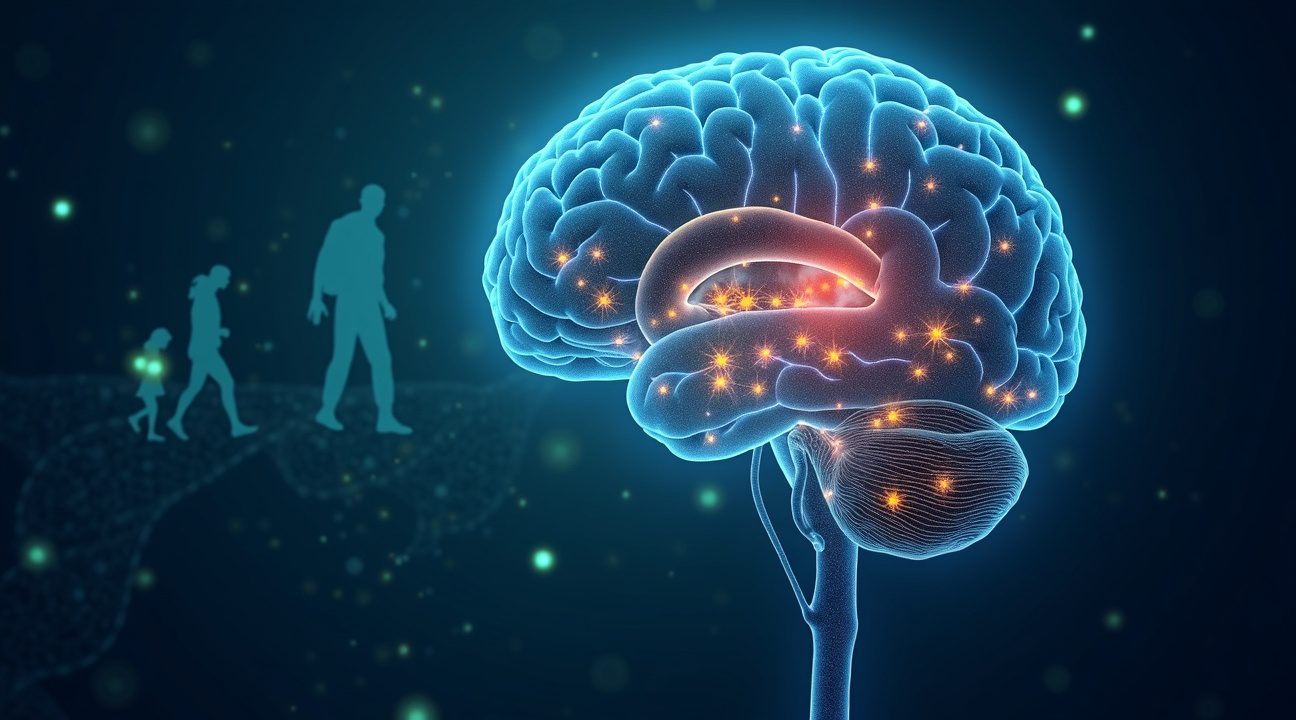
How Scientists Used AI and Advanced Techniques to Prove Adult Brain Growth
The breakthrough discovery that adults can grow new brain cells didn’t happen by accident—it required cutting-edge technology and innovative approaches that pushed the boundaries of neuroscience research. This 2025 study represents a paradigm shift in how scientists investigate brain development, combining artificial intelligence with molecular biology in ways that weren’t possible just a few years ago.
Revolutionary Molecular Analysis Techniques
Single-nucleus RNA sequencing became the cornerstone of this groundbreaking research, allowing scientists to peer into individual brain cells with unprecedented precision. This technique enabled researchers to analyze gene expression patterns in over 200,000 nuclei extracted from human hippocampal tissue samples spanning ages 13 to 78 years. Unlike previous methods that could only provide broad tissue-level information, this approach revealed the molecular fingerprints of each cell type.
The power of this method lies in its ability to identify neural progenitor cells and immature neurons—the exact cell types that indicate ongoing neurogenesis. These cells express specific genes that act like genetic barcodes, distinguishing them from mature, fully-developed neurons. By examining tissue samples from people across such a wide age range, scientists could compare cellular populations between younger and older brains with remarkable accuracy.
The dentate gyrus emerged as the focal site where new cell growth occurs most actively. This brain region, nestled within the hippocampus, showed consistent patterns of cellular renewal across different age groups. Scientists discovered that the molecular signatures of developing neurons remain remarkably consistent throughout life, providing a reliable way to identify neurogenesis in adult brains.
Training AI to Recognize New Brain Cells
Machine learning algorithms transformed how researchers could detect rare cell populations in adult brain tissue. Scientists first trained these AI systems using brain samples from children, where new neuron formation is well-established and easily identifiable. The algorithms learned to recognize the specific genetic fingerprints that characterize developing neurons, creating a comprehensive database of molecular markers.
Once trained on childhood samples, the AI could then scan adult brain tissue with extraordinary precision, identifying cells that matched the learned patterns of neurogenesis. This approach proved crucial because new neurons in adult brains are relatively rare—they might represent less than 1% of all cells in certain regions. Human researchers analyzing such vast datasets manually would likely miss these subtle but significant populations.
The 2025 research expanded this methodology by incorporating samples spanning ages 0 to 78 years, creating the most comprehensive mapping of human brain cell populations ever attempted. This extensive age range allowed for detailed population mapping and confirmed that the cellular mechanisms driving brain potential remain active throughout human life.
Transcriptomics data revealed that adult neural progenitor cells express many of the same genes found in developing brains, suggesting that the fundamental machinery for creating new neurons persists into old age. Cell division markers appeared consistently across age groups, providing direct evidence that brain tissue continues regenerating itself even in elderly individuals.
The integration of artificial intelligence with molecular biology techniques represents a new frontier in neuroscience research. These methods not only confirmed adult neurogenesis but also provided tools for future investigations into brain plasticity and regeneration. The success of this approach opens doors for similar studies examining other aspects of brain function and development.
This technological advancement helps explain previous conflicting results in neurogenesis research. Earlier studies relied on less precise methods that couldn’t definitively distinguish between new and existing neurons. The combination of single-nucleus RNA sequencing with AI-powered analysis eliminates much of the ambiguity that plagued earlier investigations, providing clear molecular evidence for ongoing brain cell production in adults.
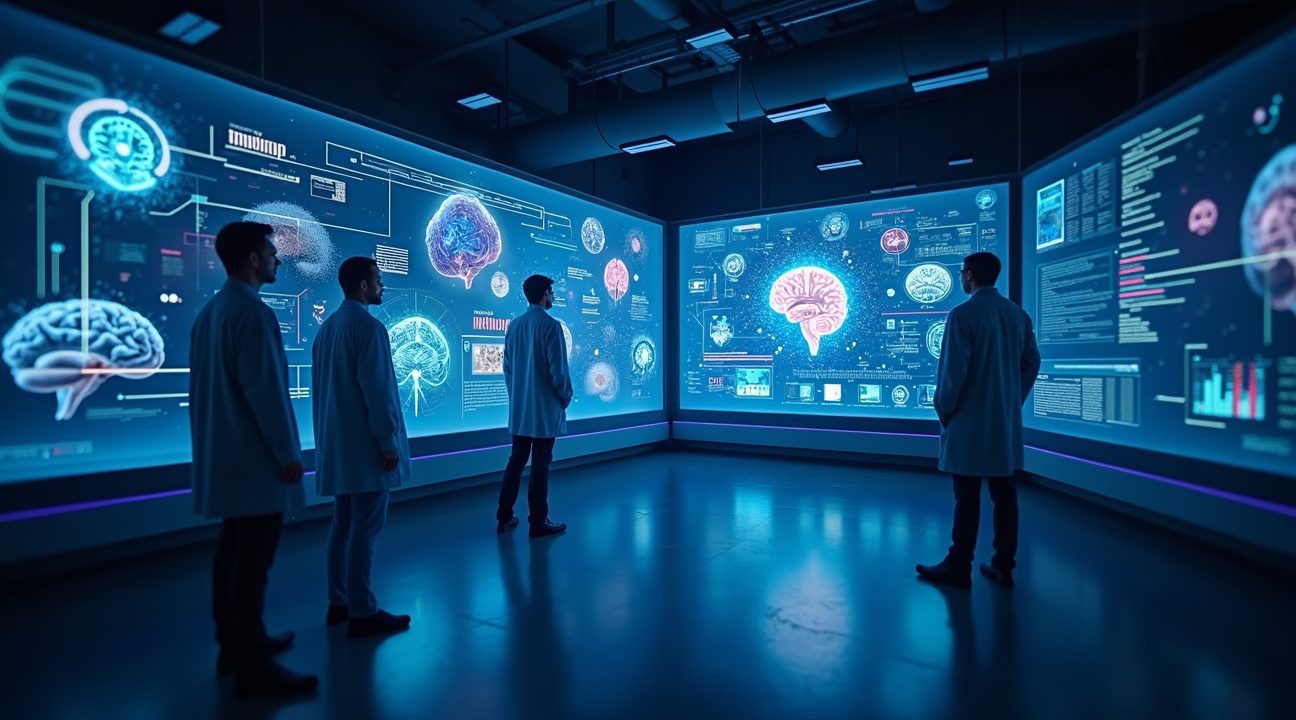
Individual Variation: Why Some Adults Grow More Brain Cells Than Others
Adult neurogenesis isn’t a uniform process across all individuals. Swedish researchers discovered remarkable differences in how many new brain cells different adults can produce, with some people showing dramatically higher rates of neural regeneration than others.
The Spectrum of Neurogenesis Capacity
The study revealed striking variations in neural progenitor cell counts among adults. While examining fourteen adult cases, researchers found that some individuals possessed abundant neural progenitor cells—the precursor cells that develop into new neurons—while others had few or none at all. Two out of the fourteen adults displayed notably higher densities of these crucial progenitor cells, suggesting their brains maintained a more robust capacity for generating fresh neural tissue.
This discovery challenges previous assumptions about uniform brain aging. Rather than experiencing a steady, predictable decline in neurogenesis, adults appear to fall along a broad spectrum of neural regenerative ability. Some maintain what researchers describe as remarkably active neurogenesis throughout their lives, while others show minimal new cell production in the same brain regions.
Unraveling the Mystery Behind Individual Differences
Scientists mapped these neurogenesis rate differences but couldn’t pinpoint exactly why such variation exists. The factors driving these individual differences remain largely unknown, though researchers suspect both genetic and environmental influences play important roles. Some people might inherit genetic variants that support continued neural stem cell activity well into adulthood, while others may lack these protective genetic features.
Environmental factors could also significantly impact adult neurogenesis rates. Lifestyle choices, stress levels, physical activity, sleep quality, and exposure to various toxins might all influence how well someone’s brain continues producing new cells. The power of sleep on brain function suggests that certain environmental factors could either enhance or suppress neurogenesis capacity.
The interindividual variation observed in this study raises important questions about what determines neurogenesis potential. Some adults might maintain youthful levels of neural regeneration due to favorable genetic backgrounds combined with brain-healthy lifestyles. Others could experience premature decline in new cell production despite being chronologically young.
Understanding these differences has profound implications for treating neurological conditions and age-related cognitive decline. If researchers can identify the specific genetic factors that support robust adult neurogenesis, they might develop targeted therapies to boost neural regeneration in those with naturally lower rates. Similarly, discovering which environmental factors promote continued neurogenesis could lead to lifestyle recommendations that help preserve brain plasticity throughout life.
The Swedish findings suggest that adult brains aren’t uniformly destined for neural decline. Instead, some individuals appear naturally equipped with enhanced capacity for lifelong brain renewal. This variation means that chronological age alone doesn’t determine neurogenesis rates—some older adults might actually produce new brain cells more efficiently than younger individuals with less favorable genetic or environmental profiles.
Future research must focus on identifying the precise mechanisms behind these individual differences. Scientists need to determine whether genetic variations in specific genes control neural stem cell maintenance, or if epigenetic changes influenced by environmental factors drive the observed variation. Understanding whether elderly patients growing new neurons represents a select group with special characteristics could revolutionize approaches to brain health optimization.
The approximately two out of fourteen adults who showed the highest progenitor counts represent a fascinating subset worthy of intensive study. Their brains might hold clues about maintaining neurogenesis throughout life, potentially revealing strategies that could benefit everyone. These individuals could provide blueprints for preserving neural regenerative capacity that typically declines with age.
This research fundamentally changes how scientists view adult brain plasticity. Rather than accepting inevitable neural decline, the discovery of significant interindividual variation opens doors to personalized approaches for maintaining cognitive function and potentially treating neurodegenerative diseases.
Revolutionary Implications for Memory Loss, Aging, and Brain Disease Treatment
The confirmation that adults can generate new brain cells fundamentally reshapes how I view treating memory loss and brain diseases. Swedish researchers have demonstrated that the human brain maintains extraordinary plasticity well into advanced age, directly challenging decades-old assumptions that neuron formation ceases after adolescence.
This breakthrough discovery opens unprecedented possibilities for treating neurodegenerative conditions like Alzheimer’s disease. Traditional approaches focused on slowing decline or managing symptoms, but identifying neural progenitors in adult brains suggests we might actually stimulate regeneration. The hippocampus, crucial for forming new memories, shows particular promise for therapeutic intervention.
Memory disorders may no longer represent irreversible decline. Since brain potential extends far beyond previous estimates, researchers can now explore treatments that harness natural regenerative processes. The presence of neural stem cells in older adults indicates that memory formation capabilities remain active throughout life.
Psychiatric disorders also stand to benefit from these findings. Depression, anxiety, and other mental health conditions often involve hippocampal dysfunction. If clinicians can stimulate neurogenesis in this region, they might develop more effective treatments that address root causes rather than just symptoms. Brain regeneration therapy could complement or even replace traditional pharmaceutical approaches.
Targeting Adult Neurogenesis for Therapeutic Applications
Developing treatments based on adult neurogenesis requires understanding how to activate dormant neural progenitors. Scientists must identify specific factors that promote or inhibit new neuron formation in humans. Key research areas include:
- Exercise protocols that maximize neurogenesis rates
- Pharmaceutical compounds that stimulate neural stem cell activity
- Environmental enrichment strategies for enhanced brain plasticity
- Timing interventions for optimal therapeutic windows
- Personalized approaches based on individual neurogenesis capacity
The variation in neurogenesis between individuals presents both challenges and opportunities. Some people naturally maintain higher rates of new neuron formation, suggesting genetic or lifestyle factors influence this process. Understanding these differences could lead to personalized medicine approaches for brain health.
Animal models, while useful, don’t fully capture human neurogenesis patterns. Researchers have found that humans show different timing, locations, and rates of new neuron formation compared to laboratory animals. This distinction emphasizes the need for human-specific research protocols and treatment development.
Pharmaceutical companies are already investigating compounds that might enhance adult neurogenesis. Early-stage research focuses on molecules that can cross the blood-brain barrier and specifically target neural stem cells. These treatments could potentially reverse age-related cognitive decline or slow neurodegenerative disease progression.
Brain stimulation techniques also show promise for enhancing neurogenesis. Non-invasive methods like transcranial magnetic stimulation might activate dormant neural pathways and encourage new cell formation. Combined with pharmacological approaches, these interventions could maximize therapeutic benefits.
The implications extend beyond treating existing conditions. Preventive strategies based on promoting healthy neurogenesis could help maintain cognitive function throughout aging. Rather than waiting for symptoms to appear, individuals might proactively support their brain’s regenerative capacity through targeted interventions.
Clinical trials testing neurogenesis-based therapies are beginning to emerge. Early results suggest that stimulating new neuron formation can improve memory performance and slow cognitive decline in older adults. However, researchers must carefully balance promoting neurogenesis with avoiding potential side effects like unwanted cell growth.
The identification of specific molecular markers for neural progenitors enables precise therapeutic targeting. Scientists can now develop treatments that activate these cells without affecting other brain regions. This specificity reduces the risk of unintended consequences while maximizing therapeutic effectiveness.
Timing appears critical for neurogenesis interventions. New neurons require weeks or months to fully integrate into existing circuits. Treatment protocols must account for these timelines to achieve optimal outcomes.
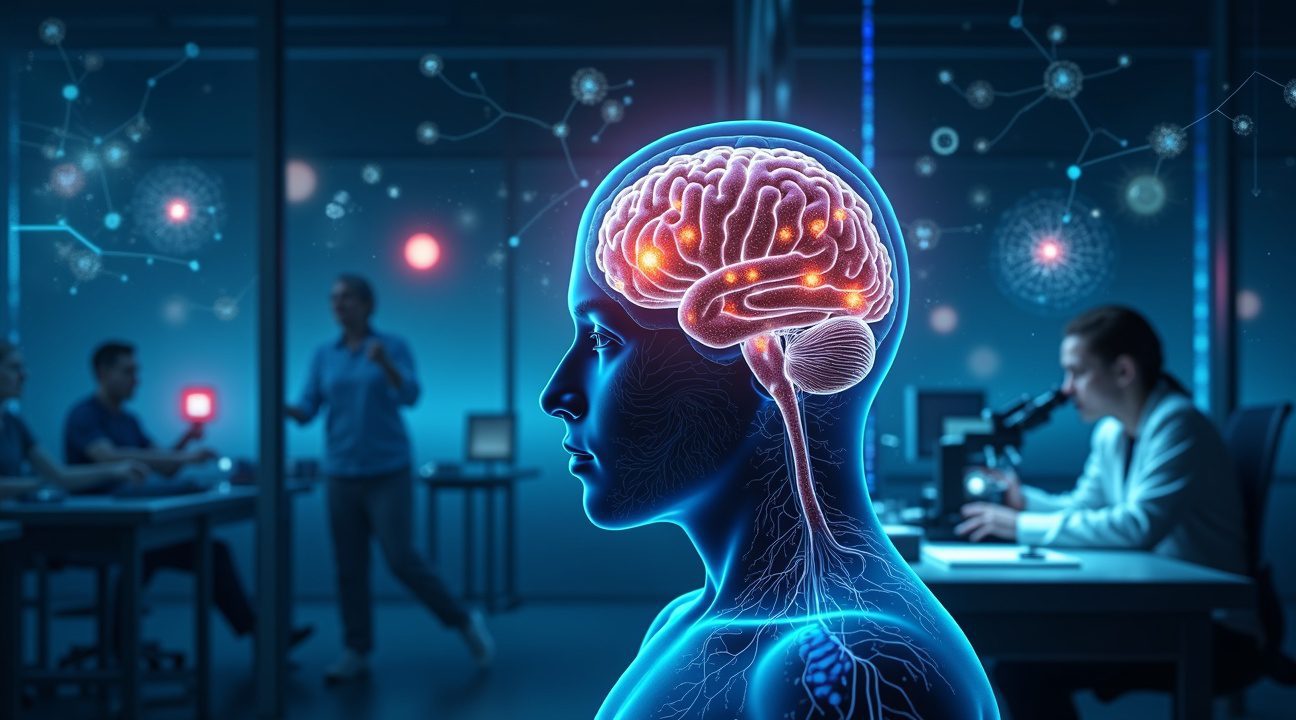
How This Discovery Compares to Previous Research and Animal Studies
This groundbreaking Swedish research stands on the shoulders of earlier work from the same institute. A 2013 study had previously suggested that adult neurogenesis might occur, but critics challenged its findings due to methodological constraints and limited technological capabilities. I find it fascinating how scientific knowledge evolves through improved techniques and technology.
The current study addresses those earlier criticisms head-on by employing more sophisticated analytical tools. Scientists now track molecular fingerprints of neuronal development, providing concrete evidence that was previously impossible to obtain. This approach eliminates much of the ambiguity that plagued earlier research efforts.
Animal Studies vs. Human Brain Development
Research in rodents has consistently demonstrated that neurogenesis occurs at a robust and rapid pace throughout their adult lives. Laboratory mice and rats can generate new neurons quickly, making their brains remarkably adaptable to new environments and learning challenges. However, the human brain operates differently from these animal models.
In humans, neurogenesis proceeds at a much slower rate compared to our furry research subjects. The new Swedish findings confirm this through genetic signatures and precise cell-stage identification within the dentate gyrus of the hippocampus. This brain region continues to produce new neurons throughout adult life, though the process unfolds more gradually than in animals.
The Hippocampus as a Neurogenesis Hub
The hippocampus emerges as the primary site where adult brains manufacture fresh neurons. This discovery challenges decades of scientific dogma that restricted neurogenesis to developing children and animal subjects. Growing new neurons in adults represents a fundamental shift in understanding brain plasticity.
Scientists can now identify specific cellular stages of neuron development using advanced molecular techniques. These methods reveal that adult brains maintain their capacity to create new neural pathways, even if the process occurs more slowly than during childhood development. The evidence suggests that human brains remain far more adaptable than researchers previously believed.
Expert consensus increasingly supports the view that adult neurogenesis, while occurring at reduced rates, represents a significant factor in brain health and cognitive function. This slower but persistent neuron production may explain how adults continue learning complex skills and adapting to new situations throughout their lives. The brain’s potential extends well beyond what scientists understood just a few years ago, opening new possibilities for treating neurological conditions and enhancing cognitive performance in aging populations.

Future Research: What Scientists Want to Learn Next
Scientists have confirmed that adults can grow new brain cells, but the functional impact of this adult neurogenesis on cognition and mental health remains partially unsettled. Research teams across the globe now focus on understanding how much these new neurons actually contribute to learning, memory formation, and overall cognitive performance.
Therapeutic Applications and Neurogenesis Stimulation
The next major research frontier involves harnessing adult neurogenesis for therapeutic purposes. Scientists want to develop targeted treatments that can stimulate the brain’s natural ability to generate new neurons. This approach could revolutionize treatment for depression, anxiety, and neurodegenerative diseases. Research teams are investigating pharmaceutical compounds, electrical stimulation techniques, and even gene therapy methods that might boost neurogenesis rates in specific brain regions.
Understanding individual variation in neurogenesis represents another critical research priority. Some people naturally produce more new neurons than others, and scientists aim to identify the genetic and environmental factors responsible for these differences. This knowledge could lead to personalized therapy approaches that account for each person’s unique neurogenesis capacity.
Lifestyle Factors and Brain Cell Growth
Future studies will examine how daily choices influence neurogenesis rates. Exercise has already shown promise in promoting new neuron growth, but researchers want to determine optimal workout types, intensities, and durations for maximizing brain cell production. Diet represents another key area of investigation, with scientists exploring how specific nutrients, meal timing, and caloric restriction might affect neurogenesis.
Mood and stress levels also appear to influence adult neurogenesis, though the exact mechanisms remain unclear. Research teams plan to study how chronic stress suppresses new neuron formation and whether stress management techniques can reverse these effects. Sleep quality and duration will likely receive increased attention as scientists explore connections between rest patterns and brain cell regeneration.
Environmental enrichment studies represent another promising research direction. Scientists want to understand how learning new skills, social interactions, and novel experiences might stimulate neurogenesis throughout adult life. These findings could inform recommendations for maintaining cognitive health as people age.
The potential connection between adult neurogenesis and mental health conditions requires further investigation. Research on elderly patients suggests that neurogenesis decline might contribute to age-related cognitive changes, but scientists need more data to establish clear causal relationships. Future studies will likely focus on whether boosting neurogenesis can prevent or treat depression, anxiety disorders, and early-stage dementia.
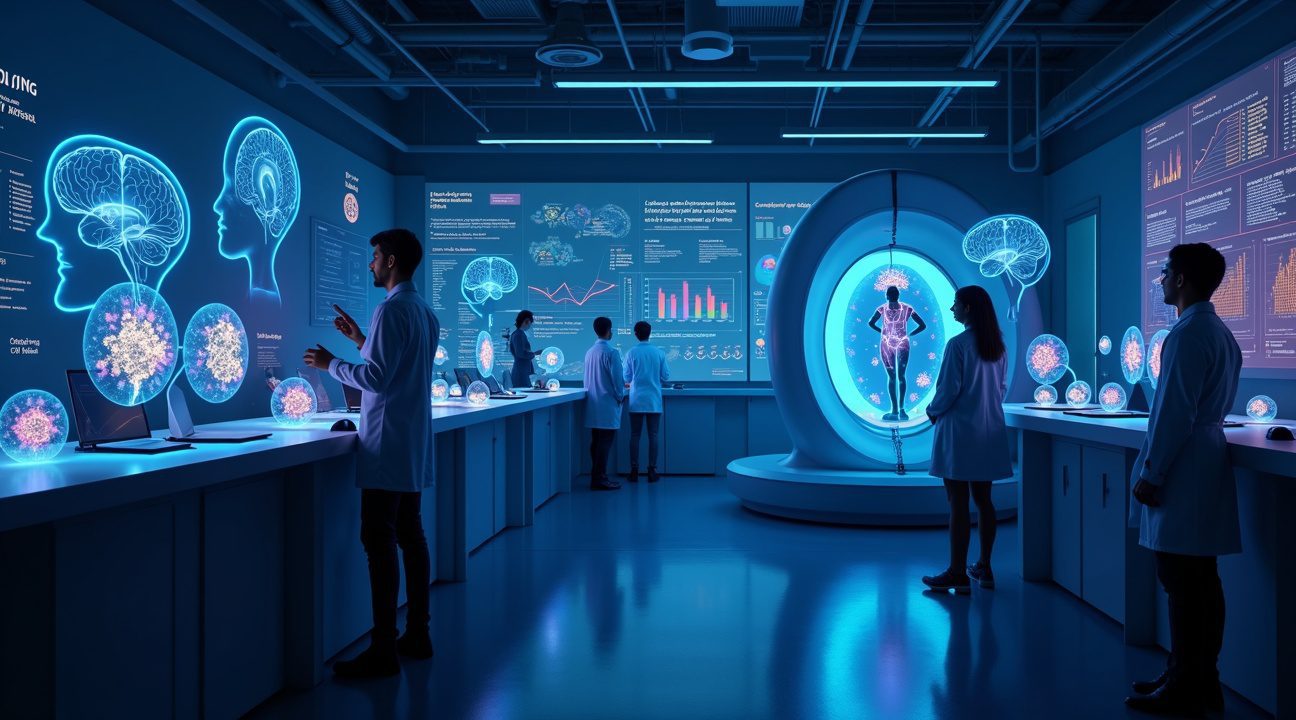
Sources:
Karolinska Institutet – New Research Confirms That Neurons Form in the Adult Brain
Science – Genetic Evidence Our Brains Make New Neurons in Adulthood May Close Century-Old Debate
Mind Matters – Researchers: Adult Human Brains Can Grow New Neurons
ScienceDaily – Researchers: Adult Human Brains Can Grow New Neurons
EurekAlert – Groundbreaking Discovery by Swedish Scientists
SGMK – Neurogenesis in Adulthood: Groundbreaking Discovery by Swedish Scientists
Popular Mechanics – Adult Brain Forms New Neurons, Study Finds
The Scientist – New Neurons Continue to Form in Adult Human Brains

